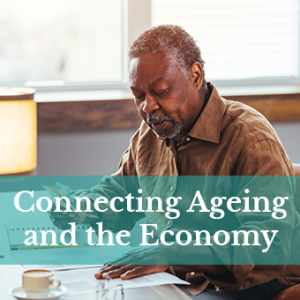Presenter(s):
Dr. Satya Brink, Simon Fraser University, Vancouver, Canada
Abstract
Current statistics on the aging population was developed decades ago when life expectancy was shorter and the cohorts were smaller. Now the population over 65 includes seven five-year cohorts and at least 2 generations, so age, gender, education, health, income, family composition and social status of older individuals mix in combinations to create diversity. Furthermore, because of life experiences, order and occurrences of life events, exposure to historical and technological period effects over a longer lifetime, the individual differences are much greater. Because older persons tend to be in better health and are more educated and skilled, they work longer in the labour force, volunteer more and participate more actively in society.
Countries around the world are aging but at different rates and with varying aging experiences for their citizens. It is more important than ever before to properly describe the population at the top of the demographic pyramid. It is unlikely that the statistical agencies would lump together a 10-year-olds with a 35-year-olds but they group 65-year-olds with 90-year-olds. To ensure that each country can support successful aging for their citizens throughout life, it is essential that they have proper data about the entire lives of citizens.
Statistical agencies are cautious and slow to change. It is, of course, understood, that statistical data must be valid and reliable, but they should also be representative and relevant. Standardized repeat measures are necessary for historical time series but additional data is necessary for a complete picture. It is important to adequately capture the commonalities as well as the variations between individuals and groups. Data should be internationally comparable.
Poor data results in unreliable evidence with large standard deviations, poor correlations and lack of comparable replications. Overuse of assumptions, will weaken the ability to forecast results for planning. If demographic statistics do not accurately capture the characteristics of older people, it is not possible to adequately target social policies and to include them in the formal, informal and voluntary economy.
To be successful, national and international statistical systems must be future oriented and take into consideration demographic, cultural and social evolution of the population in the development of statistical data. Statistical standards must be maintained while considering data demands that accurately reflect the changing characteristics of the population. This is particularly important in ‘Lower and Middle Income Countries that are aging fast.
Some additional variables to consider are: family formation through late marriage; housing arrangements such as older couples living apart; older drivers and potential use of driverless cars; later age graduation and lifelong learning; post-retirement occupations such as entrepreneurs, part-time workers and angel investors in the last decades of life. Policies based on evidence will assist people to develop human capital throughout life, to contribute to the national economy and society as informed citizens, to be technically savvy consumers, strategic investors and practitioners of sustainable development.
Bio(s):
Dr. Satya Brink is an internationally known Canadian policy researcher with a career spanning 30 years in a range of senior roles for governments, academia and the OECD, followed by twelve years of international consulting for Governments, UNESCO, OECD and the World Bank. She is the author of the book “Longevity Dividend – Later life, Lifelong Learning and Productive Societies” published by Springer in 1923. She is an affiliated researcher at ENCELL, Jönköping University, Sweden and an Adjunct Professor at the Department of Gerontology, Simon Fraser University, Vancouver, BC, Canada. She is an associate of the International Longevity Centre Canada.

